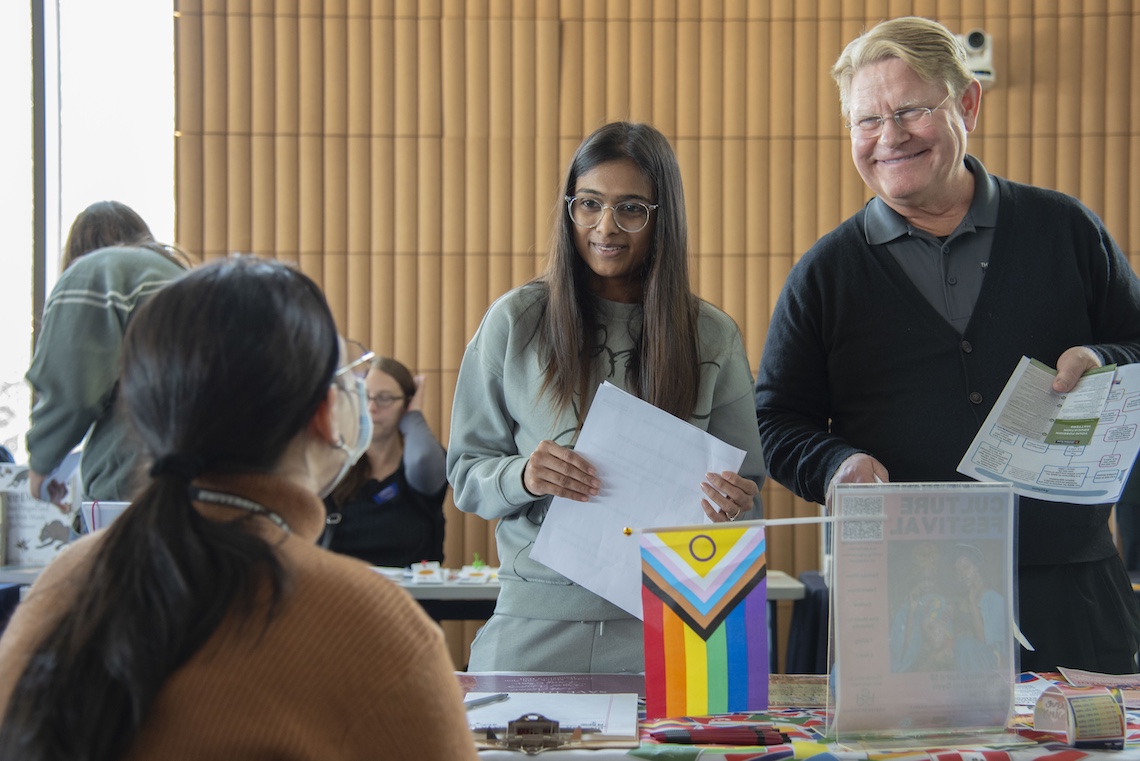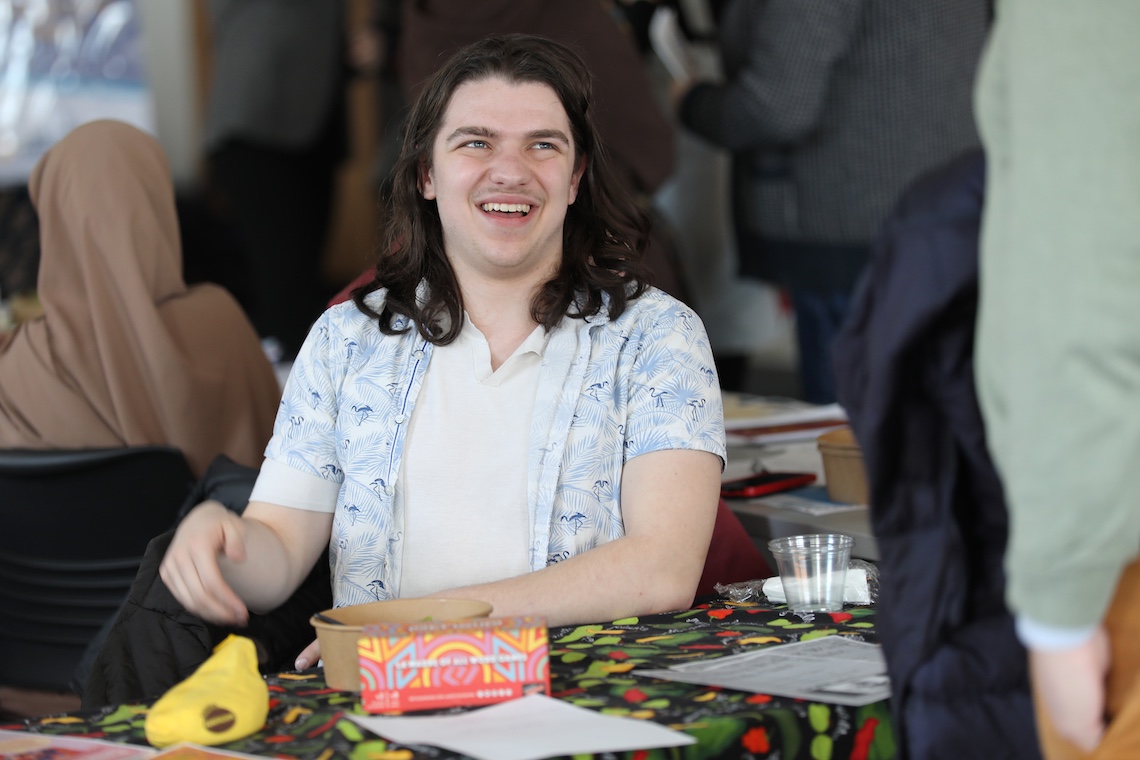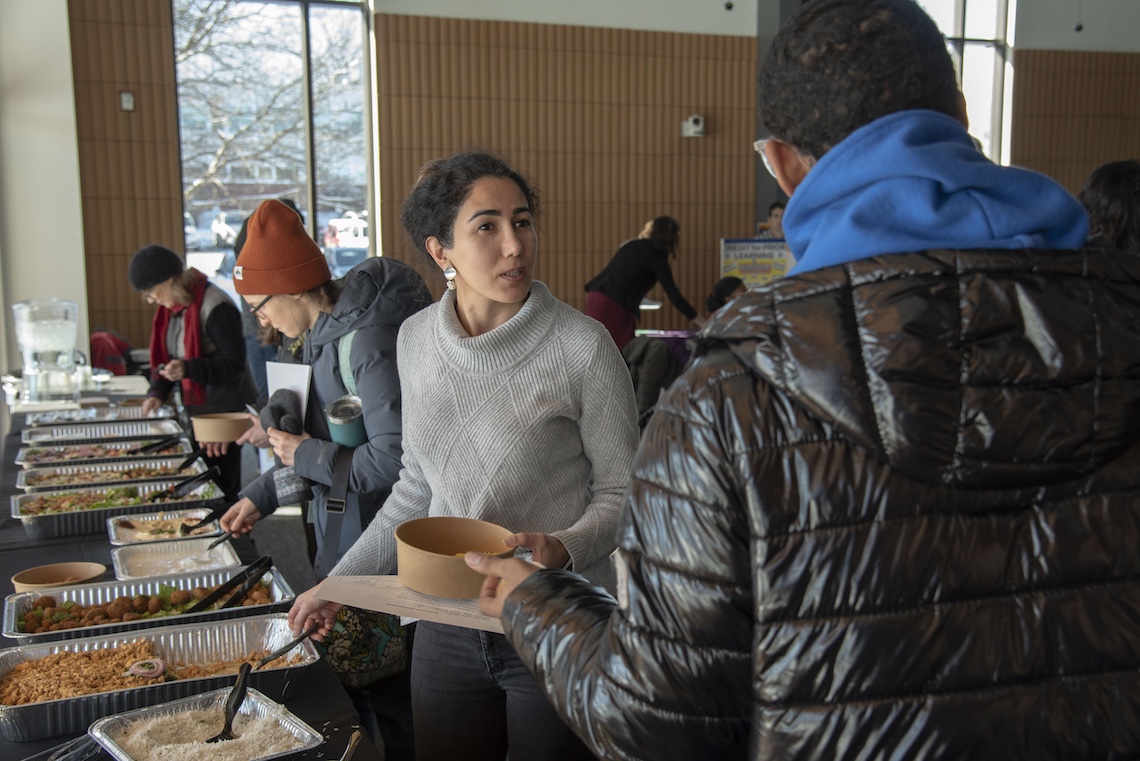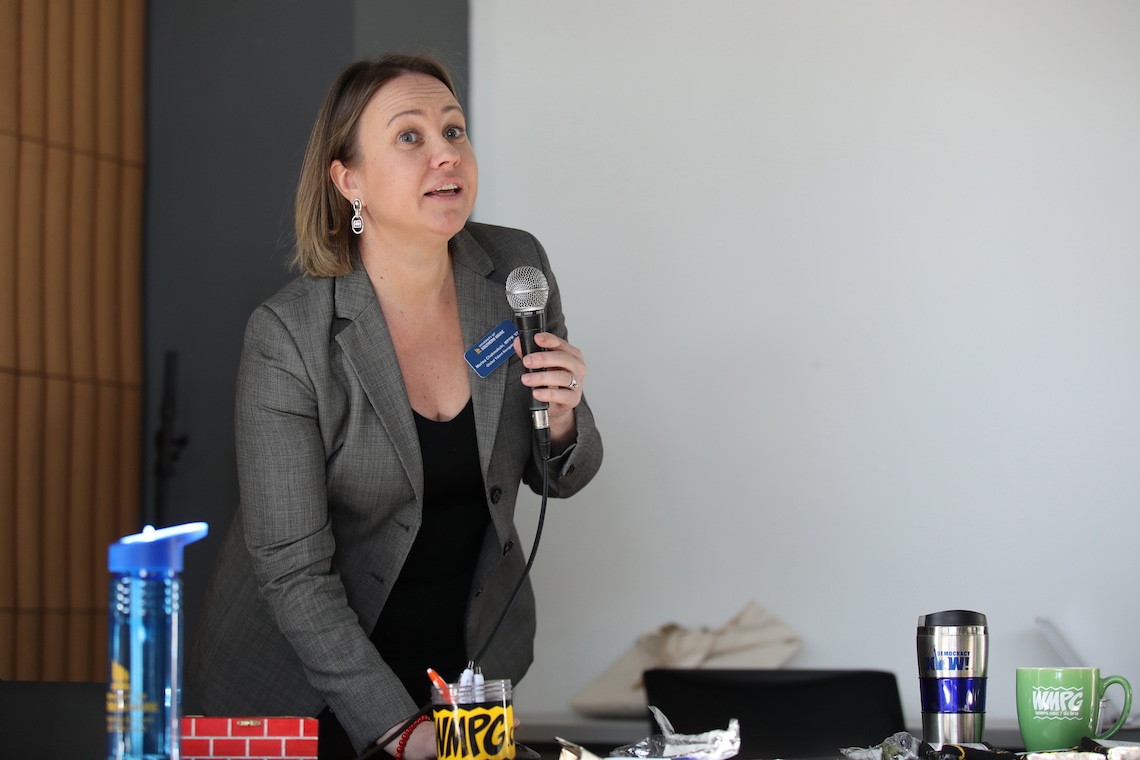Among the many accents and languages that filled the recent Multicultural Resource Fair at the University of Southern Maine, one voice could be heard above the rest.
Marina Chakmakchi had the benefit of a microphone to boost her volume. She would command the crowd’s attention every few minutes to give away a sweatshirt or some other door prize. For the person who received the branded merchandise, the USM logo stressed their membership in the campus community, regardless of where they were born.

“As a public university, we serve the community. We see the changes in the community, so we need to reflect that,” Chakmakchi said. “Maine is changing, so I’m hoping this is a good opportunity for everybody to benefit from collaborating with each other, from working with each other, from making these human connections.”
The fair on January 30 occupied the events room on the second floor of the McGoldrick Center in Portland. The tables dotting the room were staffed by University representatives, eager to answer questions about their offices and programs. That much is typical of numerous resource fairs held throughout the year. But this one was focused on students of immigrant origin.
It’s lonely not knowing anyone who celebrates the same religious holidays or cooks the same traditional foods. Intercultural Student Affairs can help by connecting students with similar backgrounds through its network of affinity groups. And non-citizens who are ineligible for work study jobs can find other money-making options through Student Employment services.
Another important part of cultural heritage, language is the province of the Linguistics Department. Students who come from abroad are often multilingual and make good Linguistics tutors. Native speakers can also benefit from continuing their own studies, according to Claire Holman who teaches classes in French and Spanish.
“Students who already have a language, we want to encourage them to work on that language, value that language and keep that language,” Holman said. “For example, there are many students from Africa who may know French but they may not have continued with it academically. We would encourage those students to consider their minor.”

The Linguistics Department offers minors in French, German, Spanish, and Wabanaki Languages, along with majors in French, Spanish, and American Sign Language. Individual courses run the gamut of Arabic, Irish, Korean, and Somali. Native speakers can take a test to determine their placement in the classes that will benefit them the most.
The Spanish Club is a more casual option to keep language skills sharp. Without an office on campus, the Club’s table at the fair was a good place for Jacob Beaulieu to introduce himself. He’s a junior Political Science major and a native English speaker. He started the club to improve his Spanish fluency and make friends with like-minded people.
Club members gather to watch Spanish-language movies and play games without lapsing into English. Contributions from people who hail from Spanish-speaking parts of the world are especially welcome.
“It’s a cool place to share a lot of culture,” Beaulieu said. “The native speakers we’ve had in the past have been really, really cool about this where they’ve taught us so much. Our last native speaker was from Venezuela, so we made arepas, which is a pretty common dish over there. It was a very cool experience.”

Arepas are thin cornmeal cakes that can be split and filled with a variety of ingredients such as meat, vegetables, beans, and cheese. The fair also laid out a memorable spread of food, courtesy of Jaffa Mediterranean Grill in South Portland. The buffet boasted a selection of Middle Eastern favorites like falafel, shawarma, and baba ghanoush.
The steady flow of visitors between the food and informational tables pleased Chakmakchi. In addition to her emcee duties, she was deeply involved in the planning process along with a coalition of campus groups known collectively as NESIO, which stands for Networking and Engaging Students of Immigrant Origin.
Chakmakchi is the Global Talent Navigator for the Office of Equity, Inclusion, and Community Impact. She understands the difficulty of adjusting to a new culture, having made the same transition herself. Her childhood home is Arkhangelsk, a Russian city near the Arctic Circle.
Upon earning her law degree, Chakmakchi launched a career as a women’s rights attorney in St. Petersburg. She returned to school after moving to the United States and graduated from USM in 2007 with a master’s degree in Public Policy and Management.

Many of the students Chakmakchi meets have a similar experience to her own. They were highly educated in their previous home countries, but lack the credentials required by American employers. Events like the Multicultural Resource Fair help clear a path to their degree and reentry into the workforce.
“We know that there are a lot of workforce gaps and workforce shortages,” Chakmakchi said. “We know that our students of immigrant origin go a lot into healthcare, and Maine needs that. People in Maine, we need healthcare workers. Or teachers who come from different backgrounds and bring their culture with them.”
Economic advancement is one of many reasons why New Mainers leave their old life to start over in a new country. Some are fleeing war or persecution. Chakmakchi wants students of all backgrounds to feel at home at USM. And if it helps, she’s happy to give them a Husky sweatshirt.

